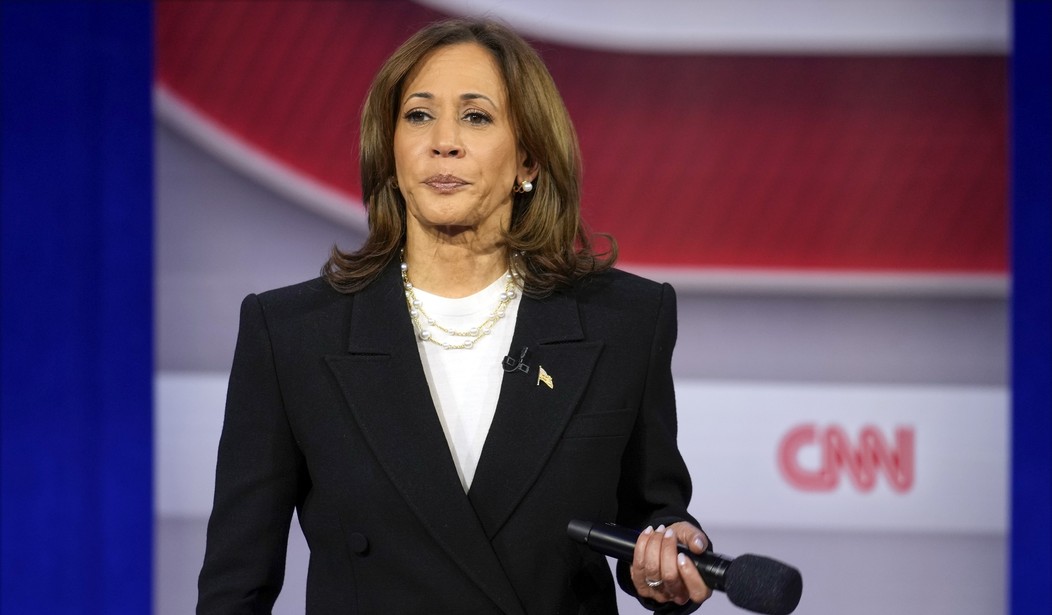Kamala Harris has a huge problem. Since entering the race in July, the former 2020 presidential candidate has been running away from almost all of her past positions on issues ranging from climate to "Medicare for All." She's been forced to do this because America, for the most part, hates radicalism in politicians.
She claims she changed her mind about issues like her proposal to ban fracking and extend Medicare coverage to anyone who wants it by talking to voters for three years and realizing the error of her ways.
It's the least believable explanation for flip-flopping ever.
In her effort to run to the middle, Harris has left behind her left flank, and the radical left isn't happy about that at all.
“The truth of the matter is that there are a hell of a lot more working-class people who could vote for Kamala Harris than there are conservative Republicans,” Vermont Senator Bernie Sanders told The Associated Press in an interview Thursday.
Sanders has been one of Harris's most active surrogates, making numerous appearances on her behalf this month, mostly in rural areas where the populist message resonates the most.
“She has to start talking more to the needs of working-class people,” Sanders said. “I wish this had taken place two months ago. It is what it is.”
She’s relying on the traditional Democratic base — African Americans, Latinos and young people who overwhelmingly lean left. Harris’ team is aware that some liberals are frustrated by her approach, especially on her support for Israel’s war against Hamas. But the campaign sees a major opportunity to expand her coalition by winning over disaffected Republicans, especially college-educated voters in the nation’s suburbs, who are uneasy about Trump.
From the Harris campaign’s perspective, the focus on moderate Republicans at this moment is simply a matter of math.
The Democrat’s campaign assesses that 10% of swing-state voters are still undecided or persuadable, according to an aide who spoke on the condition of anonymity to discuss internal strategy. Of that 10%, some 7% are considered “Cheney Republicans” who are receptive to messages attacking Trump, the aide said.
Those "persuadables" aren't going to be persuaded by "Harris, the moderate," claims Sanders and other radical left activists. Trump's ad campaign defining Harris as a radical leftist has begun to hit home, so the candidate is running far away from her past statements on a wide variety of issues.
Related: Early Voting Breaks With the Past, Favors Republicans in Nevada
Adam Green, co-founder of the Progressive Change Campaign Committee, says, “There’s been an odd disconnect between the campaign’s economic populist ad strategy and the event strategy that focuses almost exclusively on Liz Cheney kumbaya optics that depress the base right as voting begins and don’t provably win more swing voters than bread-and-butter issues.”
Trump is likely to win 85-90% of Republicans no matter how hard Harris tries to separate the "NeverTrumpers" from the rest of the party. In this sense, Green is correct. There are more votes available from white, working-class voters than disaffected Republicans.
But is the way to attract them to steer a far-left course?
Joseph Geevarghese, executive director of the progressive group Our Revolution, suggested that as many as 10% of progressives may not vote for Harris because of their frustrations. Some may not cast a ballot at all, he said, while some may even support Trump. The former president has called Cheney, a backer of the U.S. invasion of Iraq, a “stupid war hawk” as he tries to win over Arab Americans in Michigan angry about the more than 42,000 Palestinians killed in Israel’s Gaza offensive.
“We just want to raise a red flag. Don’t take the progressive movement for granted,” Geevarghese said. “There’s got to be an economic argument at the end of the day. That’s the No. 1 thing that matters to voters.”
Socialists and Communists thought the same thing about the white working class in the 1930s, '40s, and '50s. The "economic argument" made by radical leftists doesn't resonate with many working-class folks. It didn't back in the radical left's heyday during the Great Depression, and it's not resonating now.
We can only hope Harris listens carefully to Bernie Sanders and takes his advice.










Join the conversation as a VIP Member